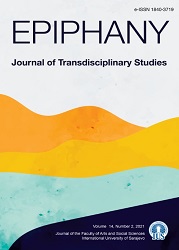A Challenge to the Contemporary Multiculturalism from a Historical Perspective: The Early Abbasid Era
A Challenge to the Contemporary Multiculturalism from a Historical Perspective: The Early Abbasid Era
Author(s): Emel Topçu, Ibrahim Halil MenekSubject(s): Political history, Government/Political systems, Culture and social structure , Social differentiation, Sociology of Culture, 6th to 12th Centuries, Sociology of Politics
Published by: International University of Sarajevo
Keywords: multiculturalism; historical multiculturalism; early Abbasid era; scientific-translation activities;
Summary/Abstract: This study examines the early multiculturalism of the Abbasid Empire. The purpose is to demonstrate the significance of historical multiculturalism in building a governmental-social system. The analysis of the early Abbasid multiculturalism also integrates Persian and Greco-Roman multicultural models. The study argues that the Abbasid Dynasty, which succeeded the Umayyad Dynasty after a revolution, had introduced a unique multicultural model by establishing a tolerant and libertarian imperial structure. In effect, the Abbasid Dynasty rejected the Umayyad emphasis on the so-called Arab nationalism in its early period (750-833). This study employs a comparative analysis of the early multiculturalism of the Abbasid Empire and modern practices of multiculturalism for textual analysis and conclusions. It is significant to demonstrate how the early multiculturalism of the Abbasid Empire could be correlated to modern multicultural practices. In this regard, the policy of support and encouragement of translation activities by the early Abbasid caliphs, rulers and intellectuals had strengthened this multicultural system, which was inclusive regardless of ethnicity, religion, and race.
Journal: Epiphany. Journal of Transdisciplinary Studies
- Issue Year: 14/2021
- Issue No: 2
- Page Range: 140-162
- Page Count: 23
- Language: English

